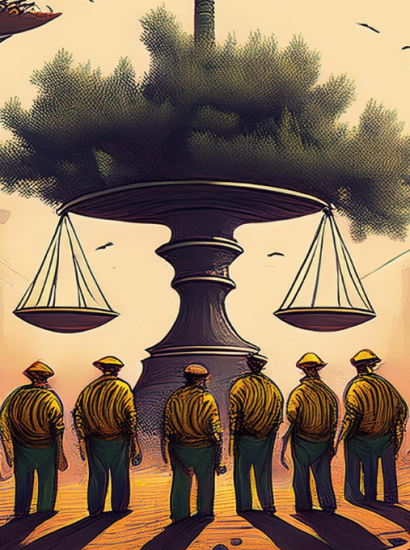This post is also available in: ΕΛΛΗΝΙΚΑ (GREEK) TÜRKÇE (TURKISH)
Even though the “debate on municipalities” has been restricted to just numbers, in essence it requires a more in-depth analysis. Following yesterday’s majority court ruling, the picture for the December 25 elections has become somewhat clearer. Naturally, there will be many setbacks experienced but at least the curtain has now been partially opened. I will not be evaluating this issue from this aspect but from another window.
***
Local administrations compared to the central administration, could be more active in offering non-discriminatory services, empowering different segments of society and ensuring gender equality. It is possible to solve problems by swiftly accessing the smallest communities and neighbourhoods through the administrative system, starting particularly from the mukhtars all the way to the municipal assembly. It is not enough to say: “I do not discriminate! I treat everyone equally.” In addition, it is necessary to offer equal opportunities to those segments of society with different characteristics/needs. That is why it is necessary to make a needs analysis at the neighbourhood level and develop concrete solution proposals based on the results.
The concept of the “Right to the City” was first put forward by French Marxist Henri Lefebvre and in the period that followed, a debate ensued on the duties of local administrations, particularly on issues pertaining to the most basic human rights; shelter, security, democratic representation in decentralised administrations, transportation, protecting the ecological balance, education and access to public health services. This is a matter that can be taken up in parallel to the issue of “social municipalities”, which is a more known approach nowadays.
***
Both international agreements currently in force and laws prepared for local governments grant local administrations the authority required. For example, some of the duties given to local administrations in the Municipalities Law 51/1991 are as follows: To provide social assistance to children in need, persons with disabilities and impoverished families within the local community. To set up and run care homes and rehabilitation centres when needed. To build and provide social housing. To set up open-air marketplaces. The gender focal point, which must be established under the relevant ministry, stipulated by the law numbered 61/2014 governing the Gender Equality Department, defines duties that include providing information and technical support to local administrations on gender equality and offering shelter services in cooperation with municipalities.
In addition, article 61, paragraph 25 of the (amendment) law on municipalities, which is still being discussed at the parliamentary committee, states that mayors, following their election and after bringing it to the attention of the municipal assembly, are required to share with the public a “Strategic Plan and Programme” within 12 months of assuming office. “Local Equality Action Plans”, which I will be touching upon a little later, must be carried out in parallel with this programme, and the budget required for its services must be determined in detail.
***
“The European Charter for Equality of Women and Men in Local Life” of the Council of European Municipalities and Regions (CEMR) is, by all means, a constitution for all municipalities wishing to implement the vision of equality. The two most important elements of this roadmap are: To be in constant consultation with civil society – experts – universities and to prepare and implement “Local Equality Action Plans” that will meet the region’s needs. As a first step, it is necessary to take a picture of the demographic structure of the population residing within a given municipality, to analyse the needs based on differences, in other words, to collect effective information. Next, to develop and implement gender mainstreaming sensitive services based on the results obtained. It is important to offer training both to the institutions and to society in these areas. One of the most fundamental needs is to create an “Equality Unit” within local administrations to coordinate the implementation of this plan. There is also the financial dimension of the matter, the budget must be designed in a way that prioritises humanitarian needs.
There are aspects of participation and representation that are not fair either. This is how the figures look, according to the data published by the State statistics institution: Mayors: 28 males, 0 females/ municipal assembly members: 188 males, 92 females/ mukhtars: 226 males, 16 females. It’s not possible to speak of fair representation when we look at these figures. Administrative positions in the units within the institution need to be examined as well. After all, participation is not only related to elections or appointments. Mechanisms that will strengthen democracy at the local level and enable local people to have an effective say also need to be created (like peoples’ assemblies, and women’s assemblies)
***
Finally, I would like to give a few examples of egalitarian mechanisms for social services that could be provided by local administrations. These, for example, have become vital, particularly at such times when poverty has increasingly deepened. Free accessible health care, day care – study groups, safe play areas, care homes for the ill and the elderly, women’s bazaars, emergency hotlines – (buttons that could be placed at bus stops), social housing, disabled-friendly transportation and access to buildings, shelters, legal and psychological counselling, gender equality training and others, all of which make living conditions more tolerable. Right to shelter – housing will become a tenacious problem for younger generations in the period ahead; in fact, it has already become so.
As the Republican Turkish Party, we have created egalitarian and inclusive local administrations to this day, and we shall continue to do so in a stronger and more planned fashion. Our goal is to achieve an understanding of local administrations that does not put anyone at a disadvantageous position due to their gender, sexual orientation, gender identity, age, language, religion, race, ethnic identity, disabilities or economic status, but strengthens them.
Source: “LOCAL EQUALITY ACTION PLANS” ARE NEEDED FOR MUNICIPALITIES THAT EMBRACE EVERYONE






